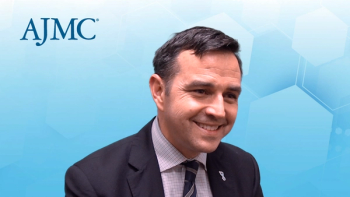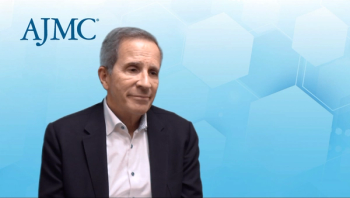
Dr Neeraj Agarwal on Why PARP Inhibitor Approval in Prostate Cancer Is Slow-Moving
Neeraj Agarwal, MD, of the University of Utah's Huntsman Cancer Institute, discusses challenges to progress in getting FDA approval for PARP inhibitors in prostate cancer.
FDA approvals for PARP inhibitors in prostate cancer treatment have taken longer than in ovarian cancer treatment.
Transcript
Olaparib was approved for ovarian cancer back in 2014, but it took until this year for PARP inhibitors be approved in metastatic prostate cancer. Why did it take so many years for the therapy to be approved in prostate cancer, when in both cases the drug is targeting BRCA1/2 mutations?
This is a great question. And actually, that points out the focus of drug development by pharma or by biotechs. The focus is usually in those disease settings which have inferior survival so that approval can be expedited, and then that can be expanded. That's number 1. Number 2, that speaks about the overall prostate cancer population. This is an older patient population, many of them are ineligible for clinical trials; they have comorbid conditions, and men do not like to talk about their cancer. Many of these [factors], including funding available for prostate cancer research, all these factors have discouraged research in prostate cancer, which was the major reason for a single-agent chemotherapy being approved for advanced prostate cancer patients until 2013—only one drug was approved for the treatment of this patient population.
Fortunately, with the increasing awareness of the research or awareness of the importance of research in patients with advanced prostate cancer, and many foundations such as the Prostate Cancer Foundation, National Cancer Institute, ASCO, the American Society of Clinical Oncology, ACR, all of them coming together, I think research in patients with prostate cancer is also moving forward with a much more rapid pace than before. So we expect many more drugs to be approved in in prostate cancer patients in the next 1, 2, or 3 years.
Newsletter
Stay ahead of policy, cost, and value—subscribe to AJMC for expert insights at the intersection of clinical care and health economics.









